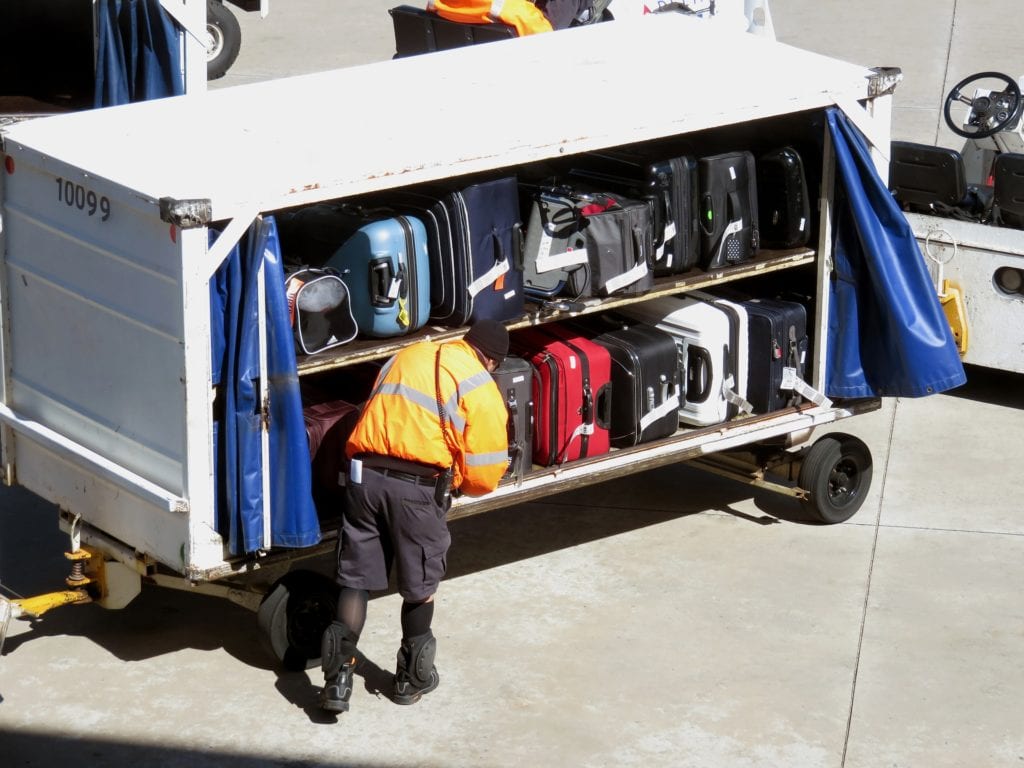Impinj Unveils First RFID Tag Engineered Specifically for Airline Baggage Tracking
Share
APEX Insight: Impinj, a provider of RAIN RFID solutions, this week unveiled a new tag chip for tracking checked baggage in the global air transport industry. APEX Media spoke to Carl Brasek, Impinj’s director Silicon Project Management, to learn more about the product.
Impinj’s newly unveiled Monza R6-B tag chip will enter production in November and is the first tag chip specifically engineered for airline baggage tracking. The company says the silicon tag will offer improved features and performance, compared to its current generation Monza 5 chip.
One of the features is a proprietary technology called AutoTune, which tunes an RFID tag’s radio based on the dielectric material and the surrounding environment’s radio frequency (RF).
“This tag will automatically detect the differences in the RF environment and tune to the right channel to best be heard and be distinguished among several dense and stacked items.” – Carl Brasek, Impinj
“If you can imagine a bunch of bags stacked high on a side cart and you had tags touching tags, or metal frames around, it’s going to affect the RF environment,” said Carl Brasek, Silicon Project Management director at Impinj. “This tag will automatically detect the differences in the RF environment and tune to the right channel to best be heard and be distinguished among several dense and stacked items.”
Monza R6-B tags also include a patented technology called Enduro to offer improved durability by distributing the weight and pressure across the tag. Brasek said the previous generation of the tag had “more probability of cracking and being rendered inoperable,” compared to the new Monza R6-B tags.
The new RAIN RFID tag will enable airlines and airports to meet the baggage tracking requirements specified in a mandate announced during the IATA Board of Governors meeting last June. IATA’s chairman of the board stated that the aviation industry will begin using RFID inlays in all baggage tags as of 2020, to improve upon current 99.4% accuracy rate of baggage handling.
“To get to the 99.9% level of accuracy, IATA felt that the aviation community needed to adopt RAIN RFID, transitioning from a barcode, which is very short-range and has to be scanned close at line of sight, to RAIN RFID, where you can stack lots of items, and still have tags that can be read,” said Brasek.
“We have long been involved in baggage-tracking deployments with our integration partners, and are now seeing fast, worldwide adoption of RAIN RFID chips, readers and software thanks to IATA’s leadership.” – Chris Diorio, Impinj
According to a study by IATA, RAIN RFID could save the air transport industry $3 billion by 2023. “We have long been involved in baggage-tracking deployments with our integration partners, and are now seeing fast, worldwide adoption of RAIN RFID chips, readers, and software thanks to IATA’s leadership,” said Chris Diorio, Impinj founder and CEO. “There are more than 280 IATA member airlines transitioning to RAIN for bag tracking. This rollout is one of the largest and fastest industry adoptions in the history of RFID.”



